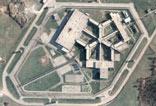Concern for hunger strikers at 'Guantanamo North'

Concern is mounting for the health of three detainees being held under 'national security certificates' at Canada's Kingston Immigration Holding Centre (KIHC), otherwise known as ‘Guantanamo North'. Mohammed Mahjoub was detained by Canadian authorities in June 2000 and has been on a liquids-only hunger strike for sixty seven days. Hassan Almrei and Mahmoud Jaballah were detained in 2001, and have been without food for fifty six days. The men are protesting against the conditions of their detention and the secrecy in which evidence against them is being kept.
A group of almost seventy health professionals and organisations have called upon Canada's Public Safety Minister, Stockwell Day, to take immediate action to address the situation of three men on hunger strike. Specifically, the group has expressed worry that 'the KIHC is not medically monitoring the vital signs and general health status of the hunger strikers' and that all three men are 'at risk of... a variety of potentially life-threatening disorders'.
According to the group, Mr. Mahjoub and Mr. Jaballah are 'particularly vulnerable to a variety of health difficulties because they are torture survivors', and Mr. Mahjoub who has contracted hepatitis C has not received treatment for the disease since September 2006. The threat to the men's lives is further heightened due to problems linked to previous hunger strikes. Majhoub went on hunger strike for seventy nine days in 2005 to obtain the necessary treatment for hepatitis C and medical attention for a knee injury. Almrei went on hunger strike twice in 2005: the first for thirty nine days to obtain winter shoes and clothes so as to protect himself from winter-cold in his barely heated cell; the second, which lasted seventy three days, to obtain the right to have an hour's exercise per day. Almrei had previously been confined to his cell twenty four hours a day with the lights permanently on.
Security certificates are issued in Canada against individuals the Canadian Security Intelligence Service (CSIS) attest to be 'inadmissable on security grounds'. However, the certificates have been severely criticised on a number of grounds:
- certificates are issued under a low standard of non-specific evidence, with hearsay and other questionable information admissable
- the standard of proof required in assessing the validity of allegations is 'reasonable grounds to believe', which sets the bar low relative to the criminal law standard of 'beyond all reasonable doubt'
- precise allegations and information provided to support the allegations are withheld from the detainee and his lawyer
Hassan Almrei has been refused bail on two occasions. Having been denied bail in November 2003 and again in November 2005, Mahjoub is now preparing his third application for release on bail. Jaballah is applying for a second time for release on bail.
Previous security certificate detainees have been released from the detention centre under under strict 'control orders'. Such orders effectively place the men under house arrest and require them to wear GPS tracking devices.
